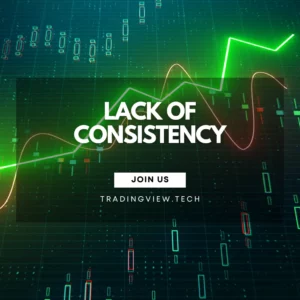Trading in financial markets is not just about numbers, charts, and strategies—it’s also a psychological game where emotions can be your greatest enemy. Fear, greed, impatience, and frustration often lead traders to make irrational decisions, resulting in unnecessary risks and losses. Even the most skilled traders are not immune to emotional reactions, but those who master their psychology gain a significant edge over the market.
The human brain is wired to seek rewards and avoid pain, which can be detrimental in trading. When a trader experiences a winning streak, euphoria may push them to overtrade or take excessive risks. Conversely, after a losing trade, fear and doubt may cause hesitation, leading to missed opportunities or revenge trading—where losses are chased with impulsive, poorly calculated moves. These emotional swings create volatility not just in the market, but in a trader’s performance as well.
To achieve long-term success, traders must learn to detach emotions from their decision-making process. This requires discipline, self-awareness, and a structured approach to trading psychology. By understanding common emotional traps and implementing effective stress management techniques, traders can develop a more stable and calculated approach to the markets. In this article, we will explore key strategies to help you trade with a clear mind, free from the distractions of fear and greed.
Understanding Emotional Traps
The first step in mastering emotionless trading is recognizing the psychological pitfalls that can sabotage decision-making. Many traders fall into common emotional traps, leading to costly mistakes. Below are some of the most dangerous emotional patterns that traders must identify and control:
1. Fear and Overcautiousness
Fear is one of the most powerful emotions in trading. It can manifest in multiple ways—fear of entering a trade, fear of losing money, or fear of missing out (FOMO). Traders who are overly cautious often hesitate to execute trades, even when their strategy signals a clear opportunity. This hesitation can lead to missed profits and frustration. Additionally, after a series of losses, fear can cause traders to exit positions too early, cutting potential winners short.
2. Greed and Overtrading
Greed can be just as destructive as fear. It often leads traders to take excessive risks, hold onto positions longer than necessary, or enter multiple trades without proper analysis. The desire to make “just a little more” can turn a winning trade into a loss if a trader ignores exit strategies and risk management rules. Overtrading—placing too many trades due to overconfidence or impatience—also falls into this category, leading to poor decision-making and increased exposure to market volatility.
3. Revenge Trading
One of the most dangerous emotional traps is revenge trading—when a trader tries to recover losses by making impulsive, high-risk trades. After a losing streak, emotions take over, and traders may abandon their strategy in a desperate attempt to “win back” their money. This often results in even greater losses, creating a downward spiral that can be difficult to escape.
4. Confirmation Bias
Many traders suffer from confirmation bias, where they only seek information that supports their existing beliefs while ignoring conflicting data. For example, a trader who is convinced that a stock will rise may overlook clear signals of a trend reversal. This cognitive bias clouds judgment and prevents objective decision-making.
5. Emotional Attachment to Trades
Traders often develop emotional attachments to specific trades or assets, making it difficult to cut losses when necessary. Instead of following a predetermined exit strategy, they may hold onto losing positions, hoping the market will turn in their favor. This resistance to accepting losses can lead to significant drawdowns and account depletion.
How to Overcome These Emotional Traps
- Develop a Trading Plan: A structured trading plan with predefined entry and exit points helps eliminate emotional decision-making. Sticking to a well-researched strategy minimizes impulsive actions.
- Use Risk Management Techniques: Setting stop-loss and take-profit levels ensures that emotions do not dictate when to exit trades. Position sizing also plays a key role in maintaining emotional stability.
- Practice Mindfulness and Self-Awareness: Recognizing emotional responses in real time allows traders to pause and reassess before making irrational decisions. Keeping a trading journal can help track emotional patterns and improve self-discipline.
- Take Breaks and Manage Stress: Trading under stress often leads to poor decision-making. Taking short breaks, exercising, and maintaining a balanced lifestyle contribute to better emotional control.
- Adopt a Probabilistic Mindset: No trade is guaranteed to be a winner. Accepting that losses are a natural part of trading helps reduce emotional reactions and fosters a long-term perspective.
By identifying and addressing these emotional traps, traders can develop a more disciplined and logical approach to trading. The next section will focus on practical stress management techniques that can help traders maintain mental clarity and focus during high-pressure situations.
Stress Management Techniques for Traders
Trading can be an intense, high-pressure activity. The constant exposure to market volatility, rapid decision-making, and the fear of loss can trigger chronic stress if not properly managed. To maintain clarity and composure, traders must treat stress management as a key part of their daily routine.
1. Create a Structured Routine
A consistent trading routine helps reduce uncertainty and promotes discipline. Set defined trading hours, pre-market preparation times, and end-of-day reviews. A structured schedule fosters a sense of control, which can help calm your mind even during market fluctuations.
2. Incorporate Mindfulness Practices
Meditation, deep breathing, and body scans are simple yet powerful ways to reduce mental clutter. Practicing mindfulness—even for just 10 minutes a day—can help you stay present, observe emotional triggers without reacting impulsively, and make decisions from a place of focus rather than fear.
3. Physical Health Supports Mental Resilience
Don’t underestimate the impact of physical well-being on mental sharpness. Regular exercise, quality sleep, and a balanced diet improve cognitive function and emotional regulation, giving you the stamina to stay calm during stressful trades.
4. Take Breaks and Avoid Overtrading
Step away from the screen when emotions run high. Breaks prevent burnout and allow you to reset emotionally. Also, avoid revenge trading—chasing losses only deepens emotional involvement and increases risk exposure.
5. Monitor Your Emotional State
Keep a trading journal that not only records technical details but also notes your emotional state during each trade. Over time, you’ll start identifying patterns—such as trading out of boredom, frustration, or overconfidence—that you can work to correct.
Building Mental Discipline and a Long-Term Mindset
Emotionless trading isn’t about becoming robotic—it’s about cultivating discipline and perspective. Successful traders develop mental habits that help them focus on long-term performance rather than short-term outcomes.
1. Define and Follow a Trading Plan
A solid trading plan acts as a roadmap that guides your decisions regardless of market noise. It should include entry and exit criteria, risk management rules, and position sizing. Following a plan removes guesswork and reduces impulsive behavior.
2. Accept Losses as Part of the Game
No strategy guarantees 100% success. Mentally strong traders accept losses as a normal part of trading. By focusing on consistency and process rather than individual outcomes, they avoid emotional reactions to isolated trades.
3. Use Automation to Limit Emotion
Whenever possible, use limit orders, stop-losses, and automated alerts to remove real-time decision-making pressure. Automation allows you to execute your strategy with minimal emotional interference.
4. Shift Focus from Outcome to Process
Evaluate your trading not just on profit and loss, but on how well you followed your rules and maintained discipline. This process-oriented mindset fosters long-term growth and keeps emotions from clouding judgment.5. Continuously Educate and Reflect
Invest time in self-improvement. Read books on trading psychology, review your performance, and seek mentorship. The more you understand your own mental patterns, the better equipped you’ll be to stay in control.



